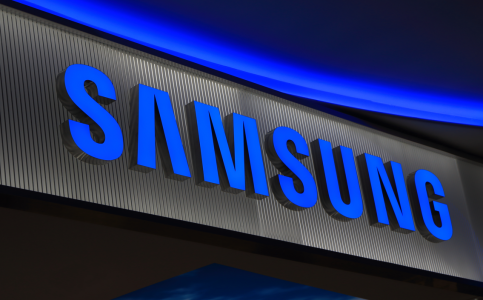Are your favourite apps at risk? Samsung's latest Galaxy update might prevent you from installing them!
By
Gian T
- Replies 1
In the ever-evolving world of technology, security is a top priority, especially for the seasoned tech users among us at the Seniors Discount Club. We've seen a lot of changes over the years, and with each new update, there's always a mix of excitement and a bit of trepidation. Samsung's latest Galaxy update is no exception, as it introduces a feature that could significantly impact how you use your phone.
The Auto Blocker feature, which is now automatically enabled on Samsung's new products, is the tech giant's latest effort to enhance security for its users. This move aligns with Google's crackdown on low-quality apps, which are set to be purged from the Play Store next month. The goal is to protect users from the myriad of dangers lurking in unauthorized apps, some of which contain malware that can lock devices, bypass two-factor authentication, and even subscribe the device to premium services without consent.
For those of us who are less tech-savvy, malware is a type of software designed to harm or exploit any programmable device, service, or network. Cybercriminals use it to extract personal data, steal money, or disrupt business operations. It's the digital equivalent of a home invader, and just as we lock our doors at night, Auto Blocker serves as a digital deadbolt for our devices.
With Auto Blocker, any attempt to download apps from unknown or unauthorized sources will be met with a pop-up alert, and the installation will be halted. This is a significant shift for users who enjoy exploring apps outside of the Galaxy Store or Google Play Store. However, Samsung assures that if you're confident an app is safe but it's being blocked, you can temporarily disable Auto Blocker to proceed with the installation.
The update doesn't stop there. Auto Blocker also shields your Galaxy device from malicious chargers and computers that might try to send commands via USB cable. This is particularly important for those of us who might charge our phones at public stations or connect to a friend's computer. It's akin to not letting just anyone drive your car; you want to ensure that only trusted sources have access to your device.
For the ultra-cautious, Samsung has introduced a 'maximum restrictions' feature. This goes beyond just blocking installations; it actively checks your already installed apps for signs of malware. It also protects against sharing sensitive information and blocks invites from unknown senders. This feature is like having a personal bodyguard for your phone, ensuring that your digital life is kept safe and secure.
Under maximum restrictions, your messages are also safeguarded. Automatic downloads of message attachments are prevented, although you can still manually download from trusted sources. Hyperlinks and preview images are also restricted to protect against malicious websites. And for those concerned about privacy, your images will no longer contain location data when sent in messages.
While these updates are undoubtedly beneficial for security, they may also raise concerns about the freedom to use your device as you wish. It's a delicate balance between safety and autonomy, and each user will have to decide how much control they're willing to relinquish for the sake of security.
At the Seniors Discount Club, we understand the importance of staying safe in a digital world, but we also value the freedom to choose how we use our technology. We encourage our members to stay informed about these updates and to adjust their settings in a way that feels right for them.
 Have you experienced any issues with installing apps on your Samsung Galaxy device since the update? Do you feel more secure with these new features, or do you find them restrictive? Share your thoughts and experiences in the comments below, and let's navigate this digital landscape together.
Have you experienced any issues with installing apps on your Samsung Galaxy device since the update? Do you feel more secure with these new features, or do you find them restrictive? Share your thoughts and experiences in the comments below, and let's navigate this digital landscape together.
The Auto Blocker feature, which is now automatically enabled on Samsung's new products, is the tech giant's latest effort to enhance security for its users. This move aligns with Google's crackdown on low-quality apps, which are set to be purged from the Play Store next month. The goal is to protect users from the myriad of dangers lurking in unauthorized apps, some of which contain malware that can lock devices, bypass two-factor authentication, and even subscribe the device to premium services without consent.
For those of us who are less tech-savvy, malware is a type of software designed to harm or exploit any programmable device, service, or network. Cybercriminals use it to extract personal data, steal money, or disrupt business operations. It's the digital equivalent of a home invader, and just as we lock our doors at night, Auto Blocker serves as a digital deadbolt for our devices.
With Auto Blocker, any attempt to download apps from unknown or unauthorized sources will be met with a pop-up alert, and the installation will be halted. This is a significant shift for users who enjoy exploring apps outside of the Galaxy Store or Google Play Store. However, Samsung assures that if you're confident an app is safe but it's being blocked, you can temporarily disable Auto Blocker to proceed with the installation.
The update doesn't stop there. Auto Blocker also shields your Galaxy device from malicious chargers and computers that might try to send commands via USB cable. This is particularly important for those of us who might charge our phones at public stations or connect to a friend's computer. It's akin to not letting just anyone drive your car; you want to ensure that only trusted sources have access to your device.
For the ultra-cautious, Samsung has introduced a 'maximum restrictions' feature. This goes beyond just blocking installations; it actively checks your already installed apps for signs of malware. It also protects against sharing sensitive information and blocks invites from unknown senders. This feature is like having a personal bodyguard for your phone, ensuring that your digital life is kept safe and secure.
Under maximum restrictions, your messages are also safeguarded. Automatic downloads of message attachments are prevented, although you can still manually download from trusted sources. Hyperlinks and preview images are also restricted to protect against malicious websites. And for those concerned about privacy, your images will no longer contain location data when sent in messages.
While these updates are undoubtedly beneficial for security, they may also raise concerns about the freedom to use your device as you wish. It's a delicate balance between safety and autonomy, and each user will have to decide how much control they're willing to relinquish for the sake of security.
At the Seniors Discount Club, we understand the importance of staying safe in a digital world, but we also value the freedom to choose how we use our technology. We encourage our members to stay informed about these updates and to adjust their settings in a way that feels right for them.
Key Takeaways
- Samsung has introduced an Auto Blocker feature that automatically activates its new products to enhance security.
- The Auto Blocker feature prevents the installation of apps from unauthorised sources and warns users with a pop-up alert.
- In addition to blocking unauthorised app installations, Auto Blocker also stops malicious USB commands and detects malware in images received via text.
- Samsung has implemented a 'maximum restrictions' feature for further protection, which includes checking installed apps for malware, preventing activation of device admin apps, and safeguarding sensitive information.








